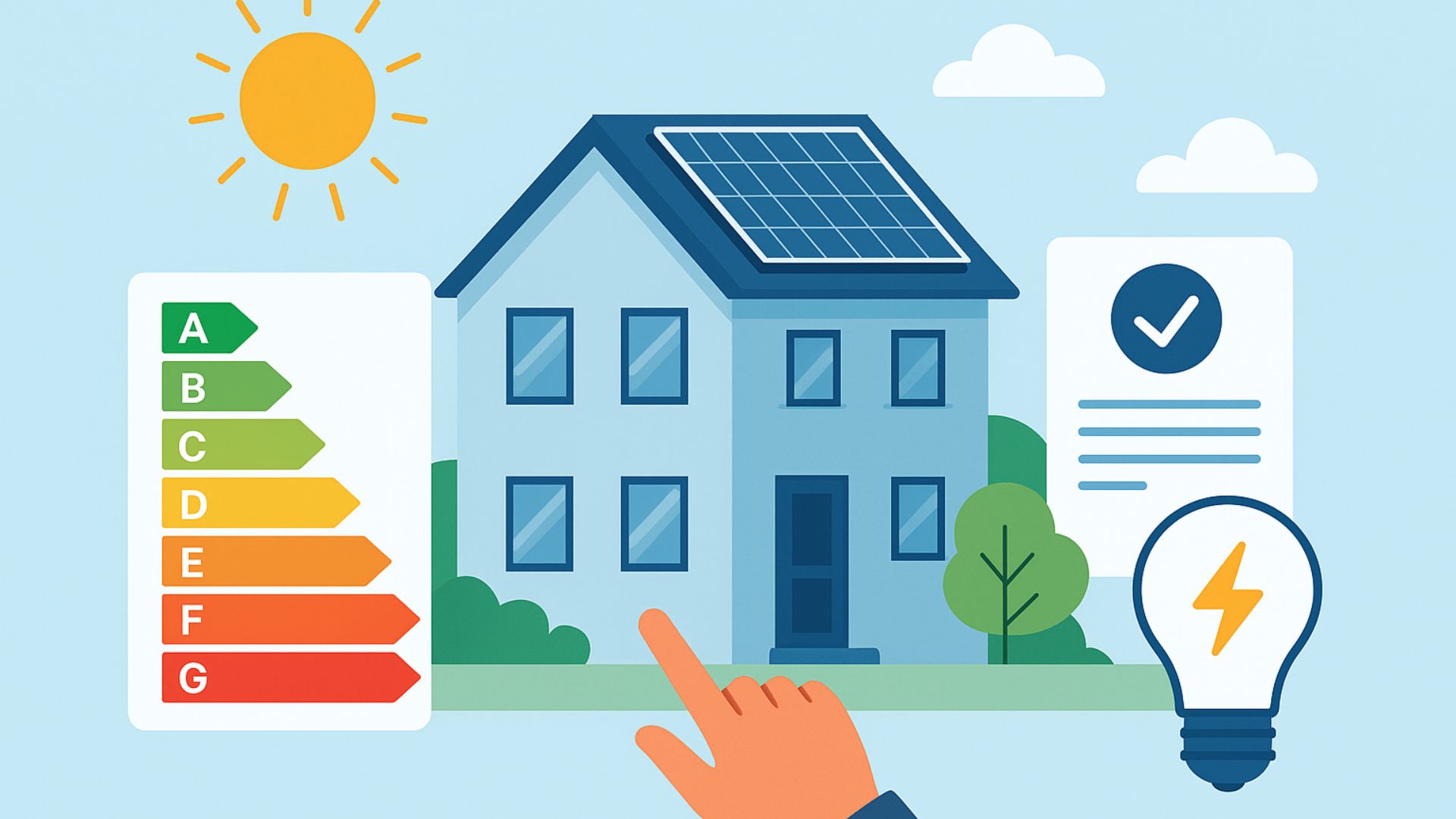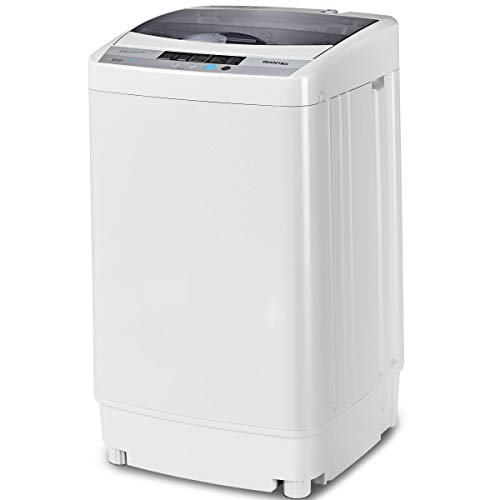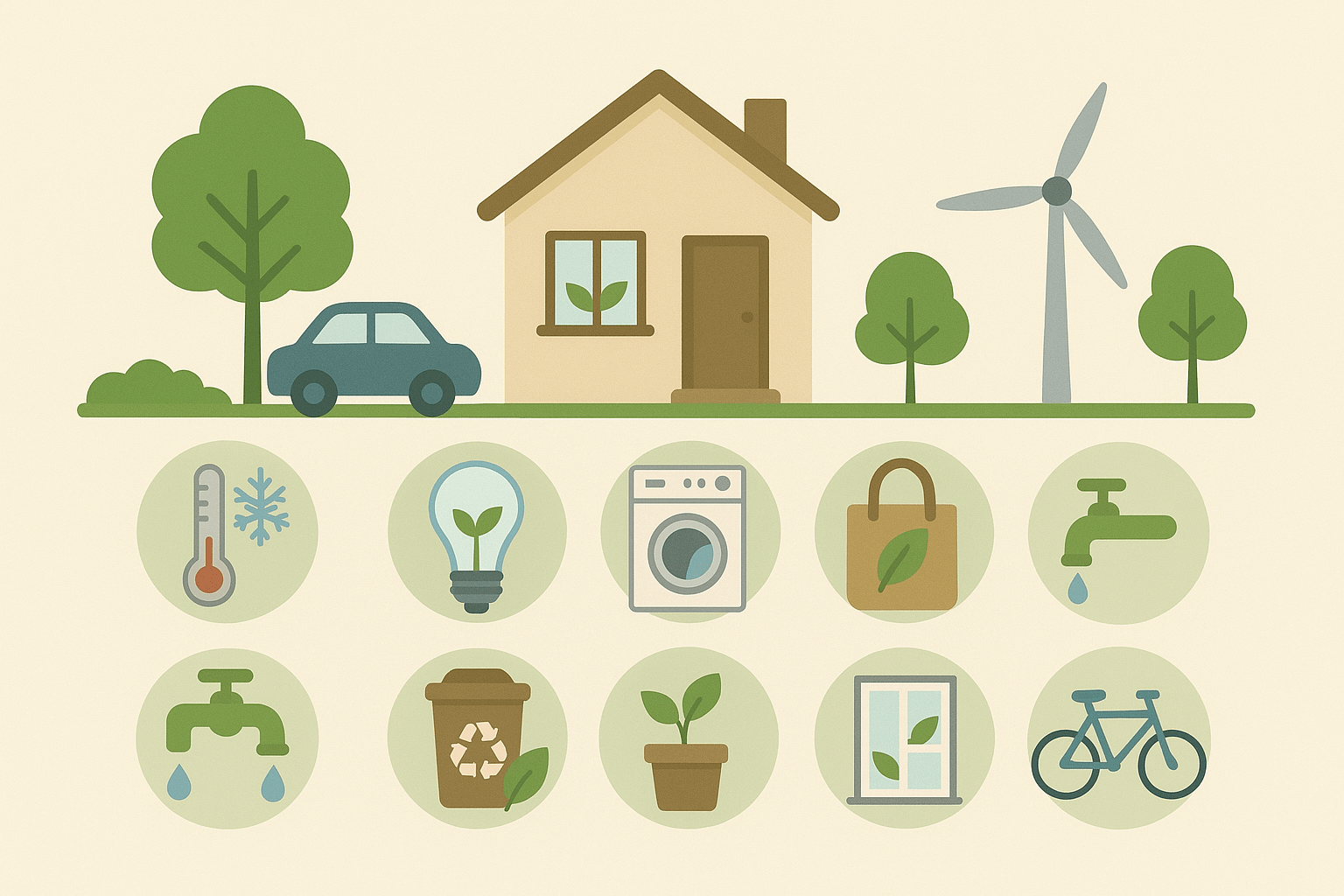In simple terms, Minimum Energy Performance Standards (MEPS) are regulations designed to ensure that buildings and appliances meet a certain level of energy efficiency. These standards set a baseline for energy performance, aiming to improve overall efficiency and reduce carbon emissions across various sectors.
Initially driven by the oil shock in the 1970s and, more recently, by growing concern about climate change, MEPShave become increasingly common for many consumer and production goods. Linked to actual or modeled performance, MEPS commonly command minimum energy efficiency performance. Over time, MEPS have evolved to address the growing need for sustainable energy use and environmental protection.
Key Components
MEPS typically include:
- Performance Requirements: Specific criteria that products must meet to be sold.
- Energy Efficiency Targets: Goals for reducing energy consumption.
- Compliance Mechanisms: Methods to ensure adherence to standards.
These components work together to ensure that products are both energy-efficient and environmentally friendly!
Buying energy-efficient products means purchasing items that are designed to use less energy while performing the same function as their less efficient counterparts. These products, such as LED light bulbs, smart thermostats, energy-efficient appliances, and low-power electronics, are specifically engineered to reduce energy consumption and waste.
By using less energy, these products help lower utility bills, reduce greenhouse gas emissions, and decrease the overall environmental impact. Additionally, energy-efficient products often meet or exceed energy efficiency standards set by government programs like ENERGY STAR, ensuring that they contribute to a more sustainable future while providing economic benefits to consumers through cost savings over time.
All of the following products are designed to enhance your home's energy efficiency and help you stay compliant with minimum energy performance standards. By choosing appliances that meet or exceed these standards, you not only reduce your energy consumption but also ensure that you are contributing to a more sustainable and cost-effectivehome environment.
In the United States, MEPS are enforced by the Department of Energy (DOE). These standards cover a wide range of products, from household appliances to industrial equipment.
The goal is to ensure that products meet a minimum level of energy efficiency. The DOE regularly updates these standards to incorporate new technologies and improve energy savings.
The European Union has a comprehensive framework for MEPS, known as the Ecodesign Directive.This directive sets mandatory energy efficiency requirements for various products sold in the EU.
The aim is to remove the most environmentally harmful products from the market.Compliance is monitored through inspections and testing, ensuring that products meet the required standards.
In the Asia-Pacific region, countries such as Japan, Australia, and South Korea have implemented their own Minimum Energy Performance Standards (MEPS) to enhance energy efficiency and reduce carbon emissions.
For instance, Australia has a comprehensive MEPS program that applies to a wide range of products, including refrigerators and air conditioners. This program is continuously updated to incorporate advancements in technology and improve energy efficiency standards. MEPS play a vital role in decreasing energy consumption and promoting environmental sustainability by removing inefficient products from the market, which benefits both consumers and the environment.
For more information on these MEPS programs and specific examples:
- Australia's MEPS Program: Visit the Energy Rating website to learn about Australia's energy efficiency standards for various appliances and equipment.
- Japan's Top Runner Program: Check out the details on Japan's innovative Top Runner Program on the Agency for Natural Resources and Energy website.
- South Korea's Energy Efficiency Standards: Explore South Korea’s approach to MEPS and its focus on energy-efficient products at the Korean Energy Agency website.
These resources provide comprehensive information on how each country has structured its MEPS to drive energy efficiency and environmental protection!
Minimum Energy Performance Standards (MEPS) play a crucial role in reducing energy consumption. By setting minimum standards, MEPS ensure that only energy-efficient products are available in the market. This leads to significant energy savings for consumers, as energy-efficient buildings and appliances consume less energy, resulting in lower utility bills. Energy-efficient technologies encouraged by MEPS ultimately save money and reduce energy waste.
One of the primary reasons for implementing MEPS is to reduce the environmental impact of energy consumption. By setting minimum standards, countries aim to curb greenhouse gas emissions and mitigate climate change. MEPShelp remove the most environmentally harmful products from the market, contributing to a cleaner and healthier environment.
MEPS not only benefit the environment but also have economic advantages. Energy savings from efficient productslead to lower operational costs for businesses and households. Additionally, the adoption of energy-efficient technologies can stimulate innovation and create new job opportunities in the green technology sector. On 19 July, energy and climate change ministers agreed to the recommendations of a decision regulation impact statement to increase the minimum energy performance standards, highlighting the ongoing commitment to energy efficiency.
Implementing Minimum Energy Performance Standards (MEPS) can be quite challenging. Government agencies and regulatory bodies must oversee compliance through inspections, testing, and certification processes, which can be resource-intensive. Additionally, the inaccuracy of some data sources, like Energy Performance Certificates (EPCs), can hinder effective implementation.
MEPS aim to remove the most environmentally harmful products from the market. However, this can sometimes lead to unintended market consequences. For instance, smaller manufacturers may struggle to meet the new standards, potentially leading to reduced competition and higher prices for consumers.
Consumer awareness is another significant challenge. Many people are not fully informed about the benefits and requirements of MEPS. This lack of awareness can result in lower compliance rates and reduced effectiveness of the standards. Efforts to educate the public are essential for the success of MEPS. Ensuring compliance with MEPS is essential for achieving their intended benefits. Non-compliant products or buildings may face penalties or be prohibited from sale or rental until they meet the required standards.
Technological advancements are set to play a crucial role in the future of Minimum Energy Performance Standards (MEPS). New technologies like heat pump technology are expected to drive significant efficiency gains. These innovations will help accelerate the adoption of more energy-efficient appliances and systems.
Policy developments will continue to shape the landscape of MEPS. Governments around the world are likely to introduce stricter regulations to ensure higher energy efficiency standards. This will not only help in reducing energy consumption but also in cutting down carbon emissions.
Global collaboration is essential for the success of MEPS. Countries need to work together to create unified standards that can be adopted worldwide. This will make it easier for manufacturers to comply and for consumers to understand the benefits of energy-efficient products.
The future of MEPS looks promising with advancements in technology, stricter policies, and increased global cooperation. These trends will help in achieving greater energy efficiency and reducing the overall carbon footprint.
The United Kingdom has seen significant success with its Minimum Energy Performance Standards (MEPS). The government has implemented stringent regulations that have led to a notable reduction in energy consumption. One key achievement is the improvement in energy efficiency in residential buildings. This has not only reduced energy bills for homeowners but also contributed to the country's overall carbon emission reduction goals.
Australia's adoption of MEPS has been equally impactful. The compliance strategy is relevant and effective in promoting the adoption of MEPS in lighting products and appliances. The country has focused on ensuring that products meet high energy efficiency standards before they can be sold. This has led to a market where energy-efficient products are the norm, benefiting both consumers and the environment.
New Zealand has also made strides in implementing MEPS. The government has worked closely with manufacturers to ensure that the standards are met without compromising product quality. This collaboration has resulted in a market where energy-efficient products are widely available, making it easier for consumers to make environmentally friendly choices.
The success of MEPS in these countries highlights the importance of government regulation and industry collaboration in achieving energy efficiency goals.
Minimum Energy Performance Standards (MEPS) have a significant impact on both consumers and manufacturers. These standards are designed to ensure that products meet specific energy efficiency criteria, which can lead to various changes in the market and consumer behavior.
MEPS influence the types of products available to consumers. By removing the most environmentally harmful products from the market, MEPS help consumers make more energy-efficient choices. This can lead to cost savings on energy bills and a reduction in overall energy consumption.
For instance, consumers may benefit from energy-efficient appliances such as refrigerators, washing machines, and air conditioners that meet MEPS criteria. These products not only consume less energy but also contribute to lower utility bills over time.
However, consumers may also face higher upfront costs for more efficient products. Despite this, the long-term savings on energy and the environmental benefits often outweigh the initial investment.
For more information on energy-efficient products and their benefits, visit:
- Energy Star for a comprehensive guide on energy-efficient appliances and their impact.
- The U.S. Department of Energy's guide on energy-efficient products and technologies.
- European Commission’s Energy Efficiency section for insights on regulations and benefits in the EU.
- Australian Government’s Energy Efficiency page for information on MEPS and product standards.
By choosing products that meet MEPS standards, consumers support sustainability and contribute to a more energy-efficient future.
Manufacturers must adhere to Minimum Energy Performance Standards (MEPS) to sell their products. This often involves redesigning products to meet the required standards, which can be costly and time-consuming.
Compliance is overseen by government agencies through inspections, testing, and certification processes. Non-compliant products may face penalties or be prohibited from sale until they meet the standards.
For further details on how MEPS are implemented and monitored, you can visit:
- The U.S. Department of Energy's appliance standards which provides information on compliance processes and guidelines.
- The European Commission's regulations on energy efficiency and compliance requirements for products sold in the EU.
- The Australian Government's Energy Efficiency page which outlines MEPS regulations and enforcement mechanisms.
- The International Energy Agency's standards and regulations for global energy efficiency practices.
Ensuring compliance with MEPS is crucial for meeting the required standards and avoiding potential market penalties.
The introduction of Minimum Energy Performance Standards (MEPS) can shift market dynamics by encouraging innovation and competition among manufacturers.
Companies that invest in energy-efficient technologies may gain a competitive edge. However, smaller manufacturers might struggle with the costs of compliance, potentially leading to market consolidation.
Ensuring compliance with MEPS is essential for achieving their intended benefits. Government agencies and regulatory bodies oversee compliance through inspections, testing, and certification processes, which tend to be annual.
Non-compliant products or buildings may face penalties or be prohibited from sale or rental until they meet the required standards.
For more information on MEPS frameworks, you can explore:
- The European Commission's Ecodesign Directive
- The International Energy Agency's energy efficiency initiatives
- The U.S. Department of Energy's website
- Australia's MEPS program details on the Australian Government's Energy Efficiency page
Compliance is in everyone's best interest to provide mutual benefits for people and the planet. 🌎
Minimum Energy Performance Standards (MEPS) play a crucial role in making sure that buildings and appliancesuse energy efficiently. By setting these standards, we can reduce energy consumption and lower carbon emissions.
This not only helps the environment but also saves money in the long run. Understanding and following MEPS is important for everyone, as it leads to a more sustainable future.
So, whether you're a homeowner, a business owner, or just someone who cares about the planet, MEPS are something you should know about and support!
You May Also Like 👇
1. Energy Efficient Mini Freezer
This article provides insights into mini freezers that are energy-efficient, aligning with MEPS guidelines.
Energy Efficient Mini Freezer
2. Best Energy Saving Fridge
A guide to choosing the most energy-saving refrigerators, which are relevant for consumers looking to meet MEPS standards.
Best Energy Saving Fridge
3. Energy Star Mini Fridge
Information on mini fridges that have earned the Energy Star label, indicating compliance with energy efficiency standards.
Energy Star Mini Fridge
4. Energy Saving Thermostats: Maximizing Efficiency and Savings
This article discusses energy-saving thermostats, which are important for managing energy use in line with MEPS.
Energy Saving Thermostats: Maximizing Efficiency and Savings
5. Most Energy Efficient HVAC System: What You Need
Details on choosing energy-efficient HVAC systems, which play a significant role in overall energy consumption and MEPS compliance.
Most Energy Efficient HVAC System: What You Need
6. Energy Efficient Compact Refrigerator
A focus on compact refrigerators that meet energy efficiency standards, providing practical options for consumers.
Energy Efficient Compact Refrigerator
7. Most Energy Efficient Space Heaters: Heat Without Added Cost
Information on space heaters that are designed to be energy-efficient, a common household appliance covered by MEPS.
Most Energy Efficient Space Heaters: Heat Without Added Cost
8. Innovative Electric Energy Saving Devices: Cutting-Edge Technology for Smarter Savings
An overview of innovative devices designed to save energy, supporting MEPS goals through advanced technology.
Innovative Electric Energy Saving Devices: Cutting-Edge Technology for Smarter Savings
- European Economic and Social Committee (EESC), 2022. Minimum Energy Performance Standards (MEPS) in the Residential Sector. European Union. Available at: https://www.eesc.europa.eu/en/our-work/publications-other-work/publications/minimum-energy-performance-standards-meps-residential-sector [Accessed 1 September 2024].
- U.S. Department of Energy, Office of Energy Efficiency & Renewable Energy (EERE), n.d. History and Impacts. U.S. Department of Energy. Available at: https://www.energy.gov/eere/buildings/history-and-impacts [Accessed 1 September 2024].





















